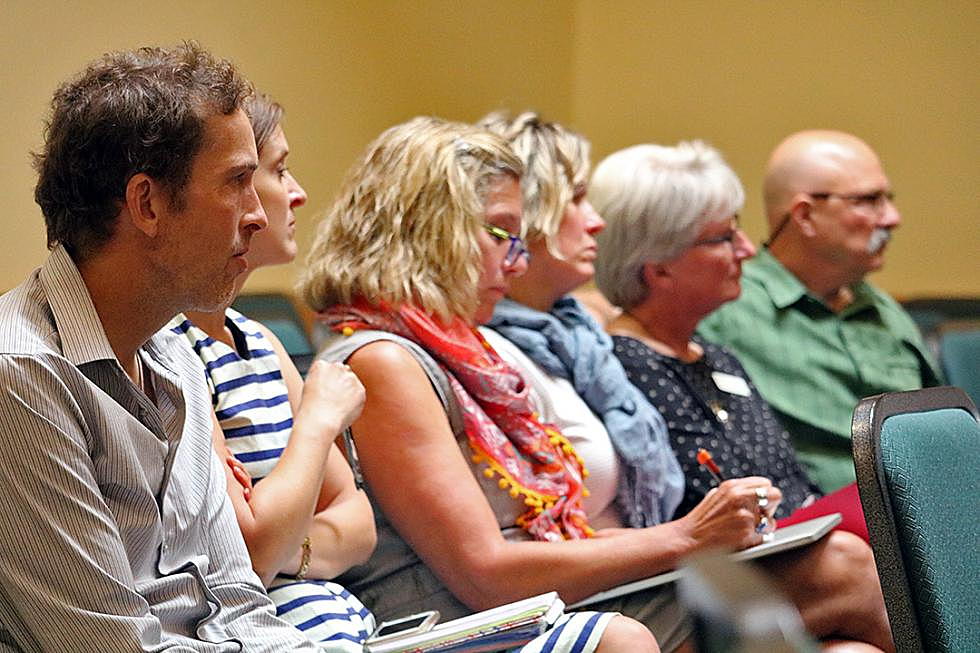
City Council committee places support behind $15M bond, perpetual stewardship levy
Supporters of conservation and open space cited the economic value of public lands and Missoula's growing population when urging members of the City Council on Wednesday to place a $15 million open space bond on the November ballot.
Their argument helped convince council members to sign a resolution of support for the 2018 ballot measure, along with a permanent, city-only mill levy to raise $500,000 annually for the stewardship of the city's open space holdings.
Support for the bond passed on an 8-2 vote, with council members Jesse Ramos and Michelle Cares dissenting. The permanent mill levy for maintenance passed on a 9-1 vote, with Ramos in the minority. Both measures will receive final consideration Monday before the full City Council.
“We're very pleased with the process and the product,” Mayor John Engen said. “We believe that with the support of advocates – the diligent work they've done in helping us understand the desire, need and support this measure will have in the community – that we can move forward with confidence and a lot of hope for the future.”
While the City Council cannot place the $15 million general obligation bond on the ballot, its endorsement could help Missoula County commissioners weigh public support as it takes up the issue later this summer.
Commissioners alone must send the bond to the ballot for voter consideration, though the City Council does have the authority to advance the Responsible Stewardship Perpetual Mill Levy.
Supporters asked them to support both measures, citing the success of the 1995 and 2006 open space bonds, and the need to maintain the open spaces those bonds helped acquire.
“That bond has continued to serve as a place where the community comes together with shared values and shared hopes, and the dollars that have been spent on that have been leveraged, leveraged and leveraged again,” said supporter Greg Tollefson. “It's been shown time and again that this is key to the economic development of this community and it's something that needs to go on and on.”
Julie Gardner, a real estate agent and bond supporter, said the 2006 open space bond helped open 5,300 acres to public access and add 19 miles of public trails. She also credited the bond with protecting 40 miles of waterways, 1,000 acres of wetlands and 9,000 acres of agricultural land.
“Even though we've added this space, we're seeing tremendous added pressure on our open spaces,” Gardner said. “This is a growing community, and it's a community that loves its outdoors.”
While no one on the council denied that open space serves as a community value, several did question the ability of some Missoula residents to absorb another bond and the increase it could have on local taxes and affordable housing.
The estimated cost of the general obligation bond for a $265,00 home – just below the current median price in Missoula – is $17.94 a year. The proposed perpetual mill for stewardship would cost the owner of the same home an additional $14.31.
“While there are pros and cons to everything, one of the cons that everyone is overlooking is the impact this will have on affordable housing,” Ramos said. “This is nice and it feels good, but we have to ask ourselves if we want to be a gem for the rich, where only the wealthy can afford to live here and enjoy the open space, or do we want to be a community for all. This is directly counter-productive to our goal for affordable housing.”
Michelle Cares, who supported the stewardship levy but withheld her support for the bond, said she had hesitations around placing another general obligation bond on the ballot.
“I've heard many people talk over the years about how bonds are approved by the voters, not by council, and therefore should not be seen as part of the overall tax picture we discuss during the city's budget process,” Cares said. “However, it's up to us – and soon the commissioners – to place these items on the ballot, and I think we need to own the impacts of bond decisions on all Missoulians.”
If approved for the ballot, the bond would mark the fourth general obligation bond in five years, with all three previous bonds passing. They include a $42 million parks and trails bond passed in 2014, a $158 million bond for Missoula County Public Schools passed in 2015, and a $30 million library bond passed in 2016.
Council member Gwen Jones, who represents the University District, said her constituents support the measure, though voters will have the ultimate say.
“The messages I get from my ward, I think there's strong support for this, because it really is a core value in Missoula,” said Jones. “I think it's wonderful this is voted on by our community. We all know that economics are difficult at times. We all have pocketbooks we're trying to stretch. It's the perfect vote for the voters to vote on and make this decision.”
Council member Mirtha Becerra, representing Ward 2, offered similar sentiments.
“Yes, we have an affordable housing problem, but I think it's a matter of supply and demand,” she said. “We're focusing our development inward where we have the infrastructure in place, and once we reach a level where Missoulians can afford to live in Missoula, we'll be thankful we acted progressively and passed this bond.”
